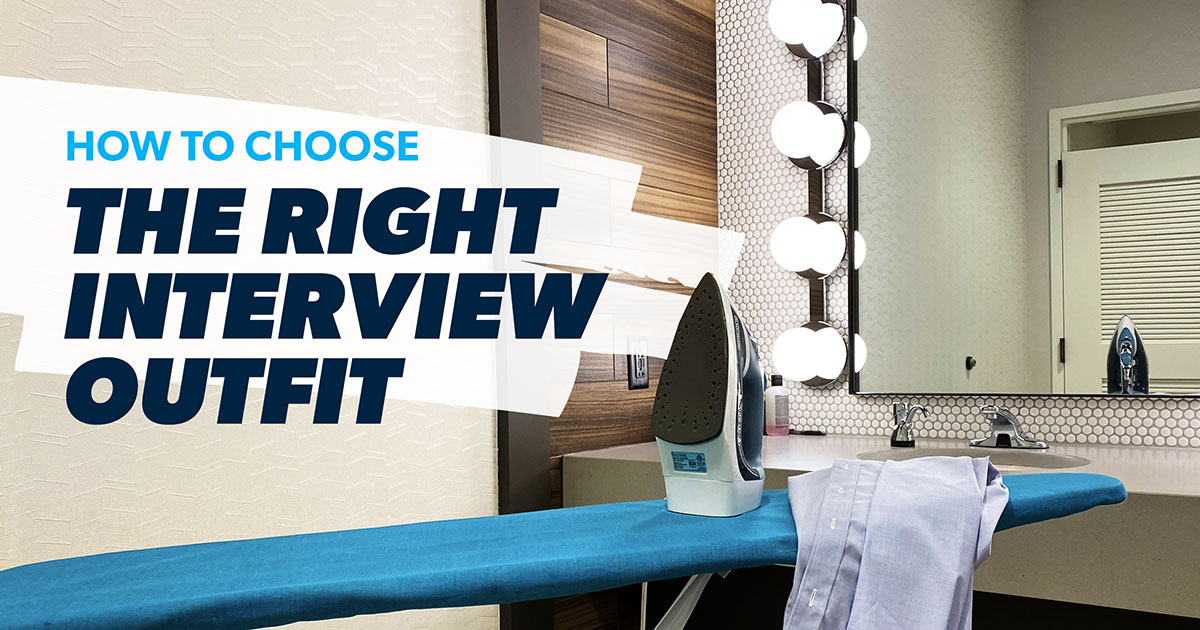
Normally, I’d tell you it’s what’s on the inside that counts. But in this case, it’s not the only thing that counts. When it comes to a walking into a job interview, your appearance absolutely matters.
While there’s a lot about the hiring process that’s out of your control, what you wear to the job interview is one of the few things you actually can control. This is good news because what you wear is crucial to making the best first impression.
Obviously, you can’t go wrong with a classic cardigan or sweater vest, if I do say so myself. But let’s go deeper than that. Here’s how to guarantee you’ll walk into the job interview looking and feeling your best.
How to Choose the Right Interview Outfit
The first step to choosing your interview outfit is to research the company’s dress code. You should aim to dress to the level of the people who work in the department you’re interviewing to work in. In other words, don’t dress like the engineers if you’re applying for a graphic designer role!
Check out the company’s website and social media accounts for clues. But also, you can simply ask! If you’re not sure what the appropriate dress code is, go straight to the source and ask your recruiter or contact at the organization.
Send an email that says, “I want to make sure I dress appropriately for the interview. What is the day-to-day dress code in your organization/on the design team?” Asking this will actually make you look thoughtful and prepared.
I’ll sum it up this way:
- Don’t overdress. Nothing says trying too hard like being overdressed.
- Don’t underdress. Nothing says lazy and disinterested like being underdressed.
- Aim to blend in so well that team members don’t know you’re not on the team.
There are three main categories for types of outfits you can go for here: casual, business casual and business. Do your best to fit in with the company culture, but when in doubt, err on the side of being formal.
Casual Outfits
If the company you’re interviewing with has an extremely casual environment—maybe it’s a particular type of retail or a trendy ad agency—you might fit in best with a casual look. But keep in mind that casual doesn’t mean sloppy. You can still look sharp in a jean jacket and athletic shoes.
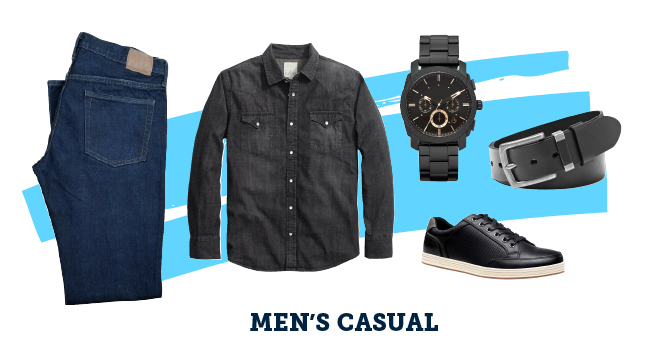
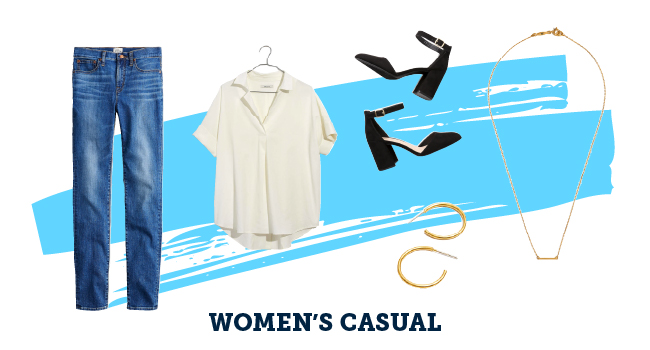
Business Casual Outfits
This is where I live, folks. I show up to work most days a step above casual, and sometimes I even bust out a blazer. Business casual incorporates work pants or skirts, nicer shoes and materials that are more refined than your average T-shirt.
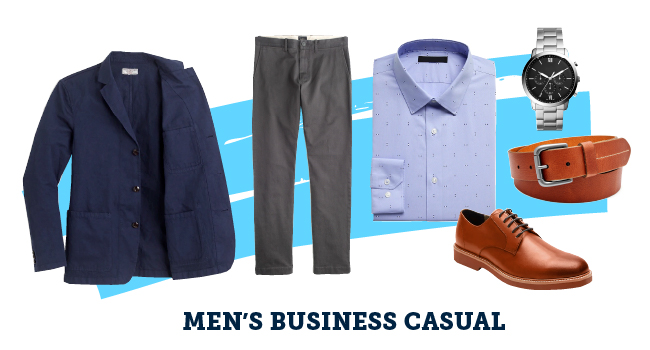
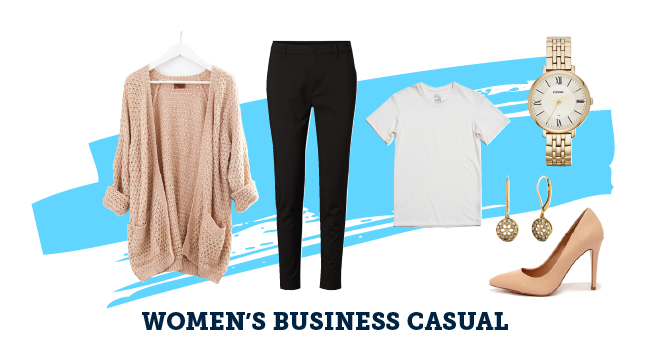
Business Formal Outfits
If you’re interviewing to be a partner at a law firm or a hedge fund manager, then you’d better pick out a suit to wear. Certain work environments really emphasize appearance—and there’s nothing wrong with that. You just need to be aware that looking the part is a big deal.
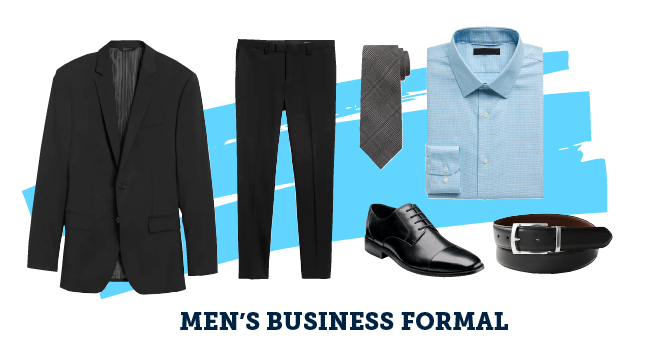
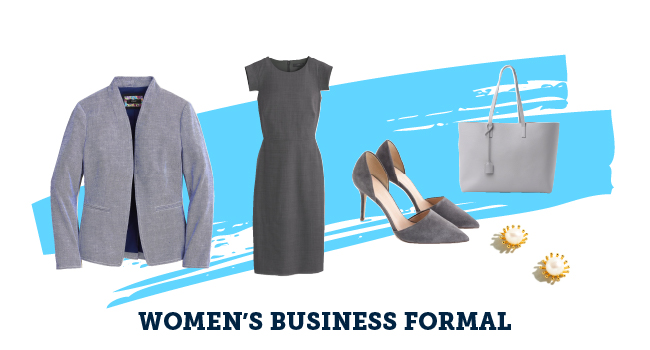
Preparing Your Interview Attire
If you spend time preparing to answer interview questions, you should also plan the right interview outfit! Here’s what you can do to look your best for the big conversation.
Plan out what you’ll wear the night before.
The last thing you want to do when you’re feeling nervous about a job interview is scramble to pick out an outfit. Don’t wait until the last minute to decide what to wear! If you do, you might have to dig through the depths of your closet or go on a stressful shopping spree.
Try on your interview outfit and see how it feels.
We all have that outfit that makes us walk with a strut and hold our head a little higher. That’s how you want to feel in whatever you choose to wear to your job interview.
You deserve to win at work. Our new book and assessment will show you how.
If fashion isn’t your area of expertise, don’t be afraid to bring in a few close friends who can make suggestions—but more importantly, who will tell you the truth. It’s worth it, because the more comfortable you are in your outfit, the more confident you’ll feel. I’m sure you have an awesome personality, but your outfit will still communicate whether you’re a top candidate or not.
Make sure your outfit fits well.
Going for the right fit means choosing sizes and lengths that work for your body.
Guys, if your pants are so long that they’re bunching up at the bottom, you’re going to look like you borrowed your dad’s pants—and that’s an awful first impression.
- If you’re swimming in your shirt, it’s too big.
- If the buttons on your shirt move when you take a breath, it’s too small.
- If you’re afraid of bending over because your pants might rip, they’re too tight.
- If you’re worried about having to take the stairs in heels, go with flats.
Whether your interview is a sit-down in a conference room or a conversation over lunch, clothes that fit well will comfortably go with you wherever you need to go.
Whether formal or causal, look sharp.
Getting the right look comes down to a few key things. First, don’t wear anything that looks old and shabby. Next, make sure anything you wear has been cleaned (no stains) and pressed (no wrinkles). Then—and I know this sounds simple—make sure your clothes match!
If you’re working Dave Ramsey’s Baby Steps and are currently on Baby Step 2 and don’t have appropriate clothes for your job interview, take a look at your budget and make some adjustments. You’re trying to get the dream job, so buying a few new articles of clothing that make you look put together is worth the investment.
You don’t have to go crazy on prices or name brands because—let’s be honest—unless your interview is at Vogue, no one is going to notice the brand! Look for affordable options at stores like Old Navy, T.J. Maxx and even Target.
Avoid eating in your interview outfit.
You don’t want to end up in the company’s bathroom scrubbing ketchup off your white shirt, so avoid eating in your outfit before the interview. Just don’t do it!
And another pro tip: Be careful if you’re drinking coffee on the way to the interview. It’d be embarrassing (not to mention painful!) to spill a steaming cup of joe on your favorite dress or your new khakis.
Choose your accessories wisely.
When it comes to accessories, less is always more—you want them to notice your personality, not your huge, flashy earrings.
Polish your shoes—no, this isn’t old school! Trust me, the manager will notice if it looks like you took a cheese grater to your shoes. Ladies, the same goes for you: If your shoes look filthy, at least take a rag to them and wipe them down.
If you’re tucking your shirt in, wear a belt that’s the same color as your shoes (as in, don’t wear a brown belt with black shoes).
What Not to Wear to an Interview
While you might have some freedom to go for a certain look, fit and feel, there are a few huge faux pas that I want to keep you from. Do not, I repeat, do not leave the house wearing . . .
- Shorts
- Graphic tees
- Tank tops
- Undergarments that show
- Flip-flops or open-toe sandals (unless you’re interviewing for a lifeguard position!)
- Revealing or tight-fitting clothing
- Excessive perfume or cologne (it’s not unusual for people to have allergies)
Prepare to Ace the Interview
If you need more tips on standing out in the hiring process, check out my interview guide. In it, I deep dive into the top five strategies you need to master to win the job interview.

